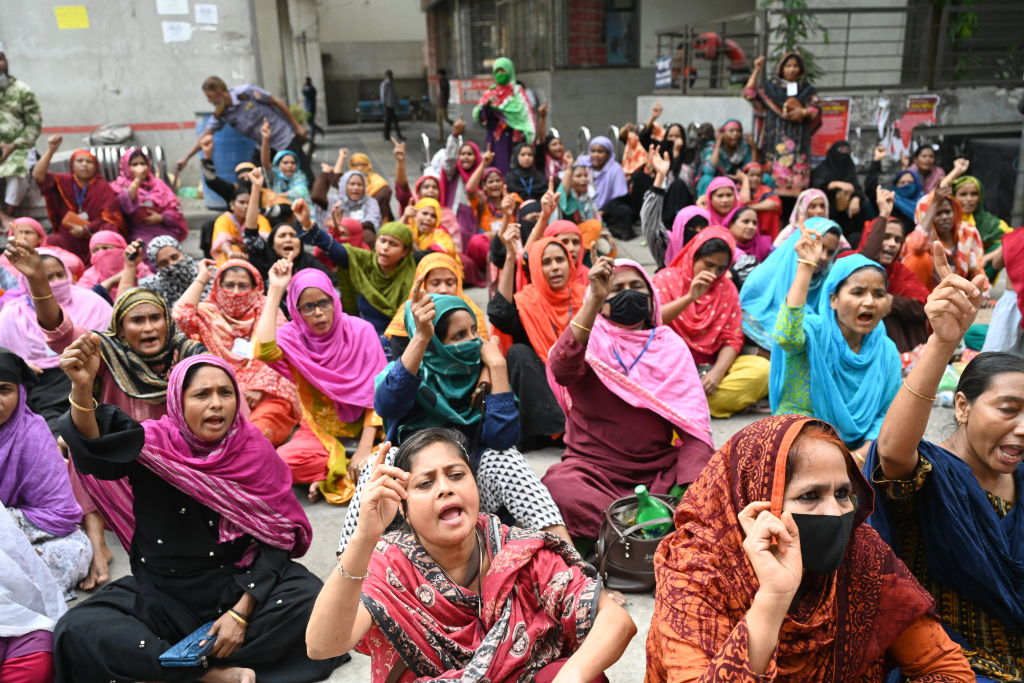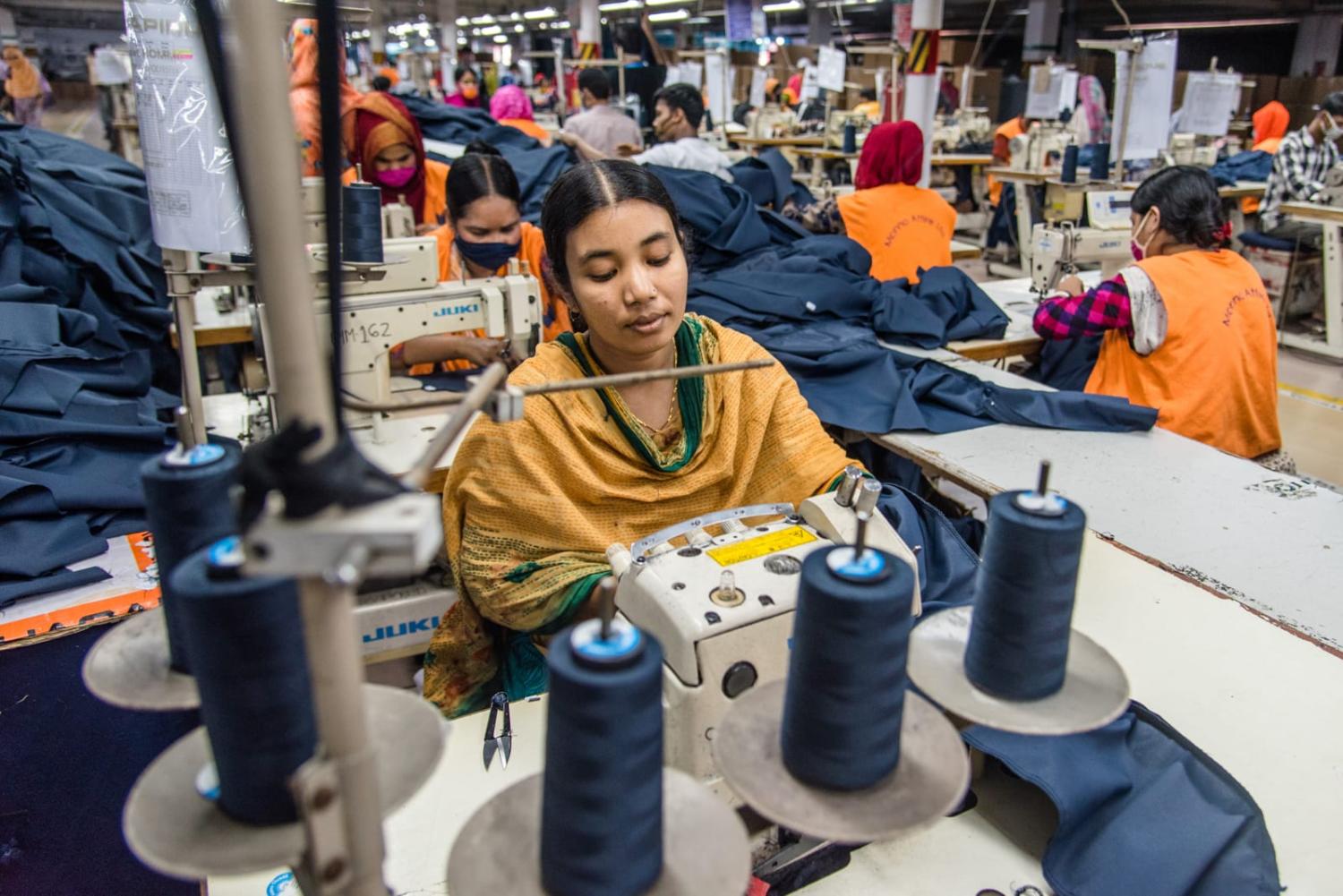An economically struggling Bangladesh could do without a stumbling ready-made garments sector – its largest export industry. However, the domestic and global political environments present severe hurdles for the country’s flagship industry in the upcoming year. A sluggish performance in this sector is likely to result in continued fiscal troubles for the newly returned government.
The result of parliamentary elections this month shocked no observers. Sheikh Hasina, the incumbent Prime Minister, continues at the helm for a fourth consecutive term. The vote had been denounced before being held as a mere façade, with allegations of unfair practices and political repression.
In part, the certainty of the Awami League (AL) victory was granted by the fact that leaders and members of the main opposition party, Bangladesh Nationalist Party (BNP), faced massive crackdowns when demonstrating for fair elections. The BNP decided to boycott the elections, resulting in one of the lowest voter turnouts on record, an estimated 40 per cent of the electorate. The BNP has also imposed countrywide rail-road-waterway blockades amid demands the government step down.
Demonstrations also extended to Bangladesh’s garment workers, protesting the industry’s minimum monthly wage of Tk 12,500 (US$110). This had fallen well short of union demands of Tk 23,000 (US$208). The government adopted a high-handed response and in one instance police fired tear gas and rubber pellets to dispel protesters, leaving four workers dead. The AL claimed that the BNP and its allies had stirred up the garment workers’ protests to fuel unrest.
The strife in the run-up to the January elections further compounded the cost to the garment manufacturing sector. Transport costs shot up due to blockades, with claims of an overall cost of Tk 65 billion (US$588 million) each day to the economy. Bangladesh’s export earnings declined for a second consecutive month in November, while more recently, shipping delays due to attacks in the Red Sea further add to costs.

And the industry may bear the brunt in other ways. The United States, the biggest export destination for Bangladesh’s ready-made garments, criticised the government for violence against workers and its “criminalisation of legitimate worker and trade union activities”. The Biden administration repeatedly urged Bangladesh to conduct fair elections and placed visa restrictions on individuals said to be involved in election manipulation. The announcement in November of the “Presidential Memorandum on Advancing Worker Empowerment, Rights, and High Labour Standards Globally” raised the prospect of economic sanctions, while a recent letter by US Congress members to the American apparel association supporting the Bangladeshi workers’ demands highlights that the issue commands high salience in American political circles.
Similar threats of sanctions by the European Union – the other large importer of Bangladeshi garments – has also been flagged in a recent EU report. Bangladesh currently enjoys duty-free status under EU’s Generalised Scheme of Preferences (GSP) program. However, while highlighting recent labour rights concerns in Bangladesh, the report mentioned that “GSP preferences can be removed if beneficiary countries fail to respect core human rights and labour rights”.
The EU has also rejected the possibility of a free trade agreement with Bangladesh, which makes a recent deal between the EU and Vietnam a further blow to local garment producers. As Bangladesh strives to achieve developing nation status in 2026, it would lose duty free access to the EU – while the reduction in duties for Vietnam under the EU deal has already seen the country’s garment exports rise by almost a third, taking Bangladesh’s market share.
With workplace disruptions and transport woes, let alone the prospect of sanctions, the outlook for Bangladesh’s garment sector appears bleak. It is an example of how local politics and international strife can combine with very real consequences.

